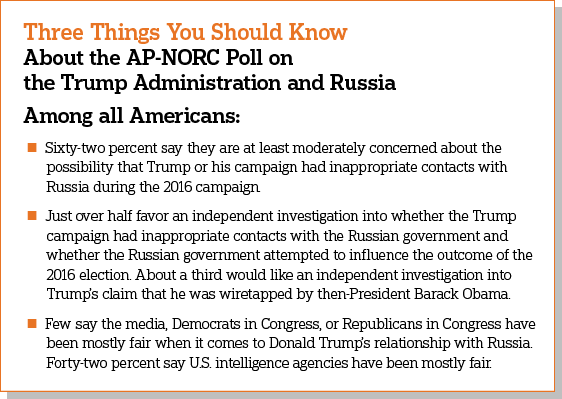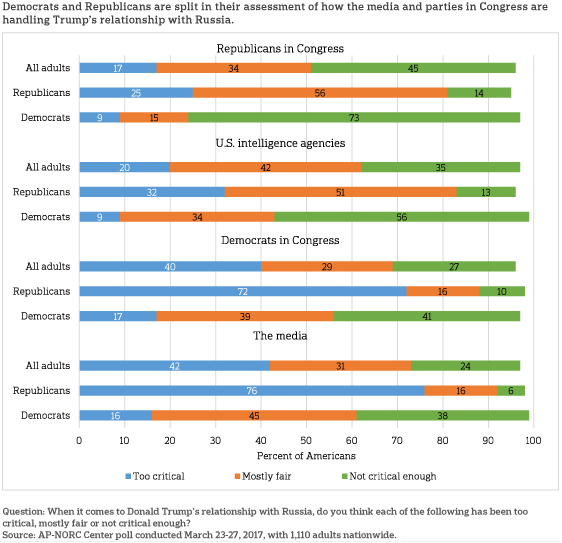
Deep partisan divides define Americans’ attitudes toward President Donald Trump’s possible ties with Russia, according to a new poll by The AP-NORC Center for Public Affairs Research. Overall, 42 percent of Americans say Trump’s relationship with Russia is important to them, 19 percent say it is moderately important, and 37 percent say it is not important. Nearly two thirds of Democrats say Trump’s relationship with Russia is important, while just a fifth of Republicans agree.
Just 36 percent of Americans are not concerned about the possibility that Trump or others involved with his campaign had inappropriate contacts with the Russian government during the 2016 presidential campaign. However, Democrats are more than twice as likely as Republicans to be at least moderately concerned (85 percent vs. 35 percent).

About half of Americans say they want an independent investigation into whether the Trump campaign had inappropriate exchanges with Russians and whether the Russian government attempted to influence the outcome of the 2016 election. Fewer (35 percent) support an independent investigation into Trump’s accusation that former President Barack Obama wiretapped his phones during the 2016 presidential campaign.
Democrats are more likely than Republicans to support investigations into the Trump campaign’s contacts with the Russian government and whether the Russian government attempted to influence the election, while Republicans are more likely than Democrats to support investigations into Trump’s claim that Obama wiretapped his phones during the campaign.
More Americans say the intelligence community is handling Trump’s relationship with Russia fairly than say the same about how the media and parties in Congress are handling it.

The nationwide poll was conducted March 23-27, 2017, using the AmeriSpeak® Panel, the probability-based panel of NORC at the University of Chicago. Online and telephone interviews using landlines and cell phones were conducted with 1,110 adults. The margin of sampling error is plus or minus 4 percentage points.



